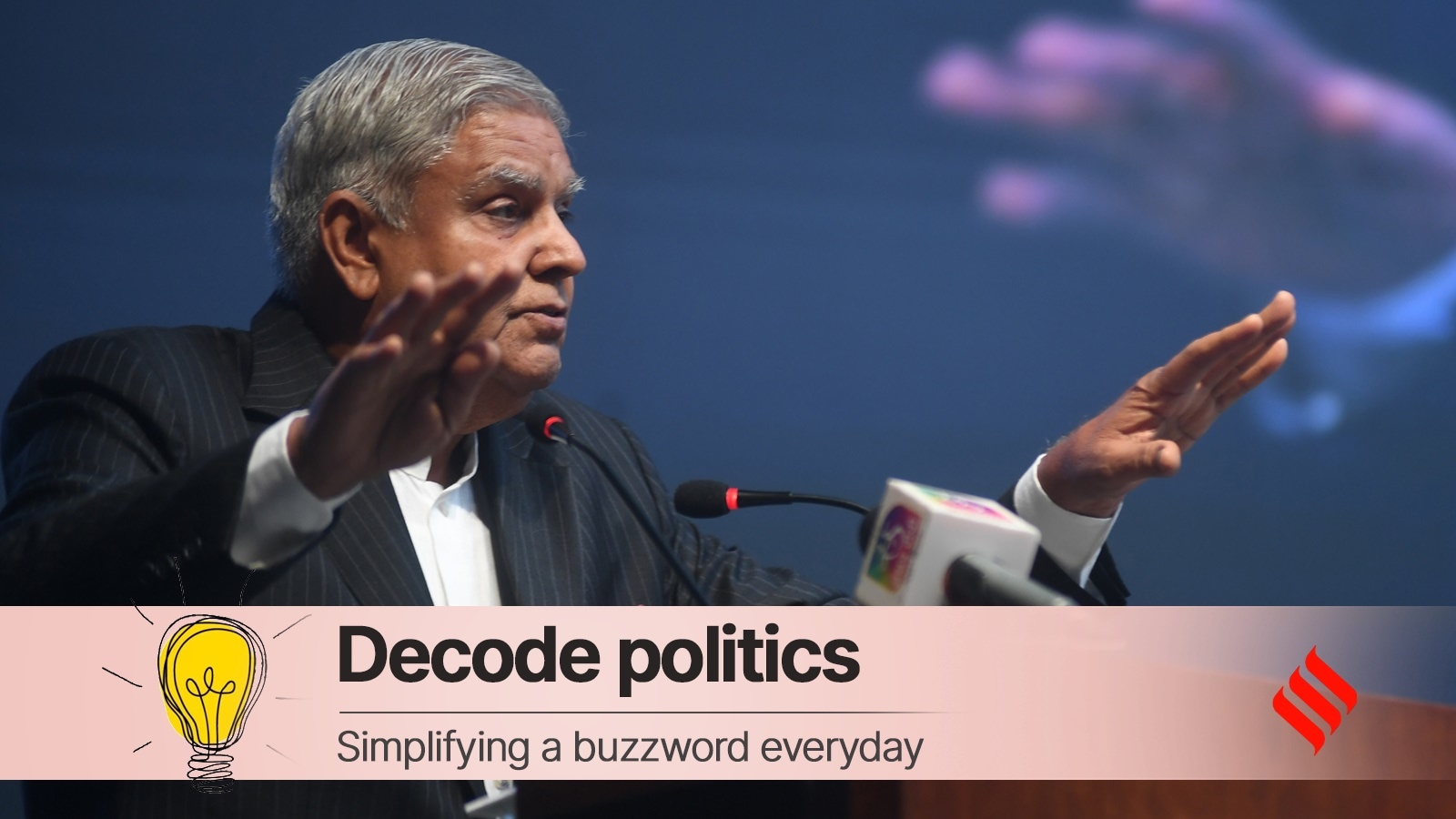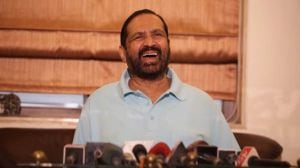In popular perception, a party whip is sacrosanct, especially when it comes to being present in Parliament when a matter important for the party is up for voting and casting their vote as per the party’s wishes. There are consequences, including expulsion, for defiance of a whip.

Where does the term whip come from?
It originates from the hunting fields of England, where a whipper-in was a member of the hunting party whose job was to bring straying hounds back into the pack. Its use in politics comes from Anglo-Irish politician and philosopher Edmund Burke. As per Courtenay Ilbert’s book Parliament, Its History, Constitution and Practice, Burke, during a speech in the House of Commons, is said to have talked about how the King’s ministers “had made great efforts to get their followers together” and “had sent for their friends to the north and to Paris, whipping them in”.
What is the history of the whip system in India?
In India, the whip system is as old as its parliamentary history, according to former Lok Sabha secretary-general P D T Achary. The system is important for parliamentary functioning as parties see voting on some matters as crucial to how their politics is perceived. Hence, MPs are expected to be present at the time of voting on matters critical to the party and follow the organisation’s line. Absence or voting against the party line can be a huge embarrassment to the party.
For the ruling party or parties of the ruling coalition, full attendance and compliance during division — where each MP’s vote on a motion is counted — on a crucial matter is also a marker of the real strength of the party or alliance and is seen as symbolic of whether they are indeed in a majority. Failure to demonstrate majority in the Lower House in such a context can also lead to a no-confidence motion.
Given that parties require their MPs to be present and vote as per the party line during division (voting) on an important matter, the party chief whip in a House is required to inform all members about what the party leadership thinks of an important matter. The whip also has to ensure their attendance when the vote takes place. Essentially, the whip is the bridge between the party leadership and the MPs and also has a sense of which members ought to speak on different issues in Parliament.
What are the different kinds of whips?
Story continues below this ad
There are three kinds. A one-line whip just informs members about a vote but permits them to abstain. A two-line whip asks them to be present but does not tell them how to vote. The three-line whip, largely the norm these days, directs members to be present and vote as per the party line.
A three-line whip to party members by a party’s chief whip carries the heading “Three-Line Whip”. Under each sentence, there are three thick horizontal lines. Largely the norm these days, this kind of whip directs members to be present and vote as per the party line.
Achary said if a member violates a three-line whip, which is the strictest of directions by a party, the leader of the party can recommend his or her disqualification to the Presiding Officer of the House. “As per the Anti-Defection Law, disqualification can happen for violation of a three-line whip. There were always members who thought that this curtailed their freedom, but even the Supreme Court has said that the whip system is necessary for the preservation of political parties,” Achary said.
He said the party system was at the root of Indian parliamentary democracy and that violation of a whip can have serious consequences in the context of the Anti-Defection Law that came into force in 1985.
Who enforces the whip system?
Story continues below this ad
The most important role in the whip system is that of the chief whip of a political party, said Achary. There are also additional whips, apart from the chief whip. The Minister of Parliamentary Affairs is the government’s chief whip in the Lok Sabha and can request leaders of all parties of the ruling alliance to issue a three-line whip to their members to be present and vote in a certain manner.
“If a member of a party in the ruling alliance violates a whip by its chief whip, the leader of the party can recommend the member’s disqualification,” Achary said. In the Rajya Sabha, the Minister of State for Parliamentary Affairs is the government’s chief whip, but what matters for members of parties most are the directions issued by their whips.
Why is the whip system important?
In Practice and Procedure of Parliament, former parliament secretary M N Kaul and former Chief Election Commissioner S L Shakdher write: “In a legislative body, not only the fate of a particular measure under consideration but the very life of the Council of Ministers itself may depend upon the result of a single division.”
Former Lok Sabha Speaker Sumitra Mahajan told The Indian Express that the whip system was important for the functioning of Parliamentary democracy. “If you are an Independent MP, you are free and can choose how to vote on a matter. However, if you are elected on a party ticket, you have been elected because of a party vote. Being a member of a party also means that you agree with its ideology and policies. So, discipline is necessary. You can express disagreement with, say, a Bill in an internal party forum. Once the party has made a decision, you should either comply or leave the party,” she said.
Story continues below this ad
Given that the whip system is crucial for all political parties, an All-India Whips conference has been held since 1952, when the first Lok Sabha was constituted. The first such event was held in Indore on September 13, 1952. Organised by the Ministry of Parliamentary Affairs, the conference provides a forum “to the whips of various political parties – ruling as well as Opposition, at the centre as well as in the states – to sit together and exchange their views,” says the Handbook on the Working of the Ministry of Parliamentary Affairs.
































